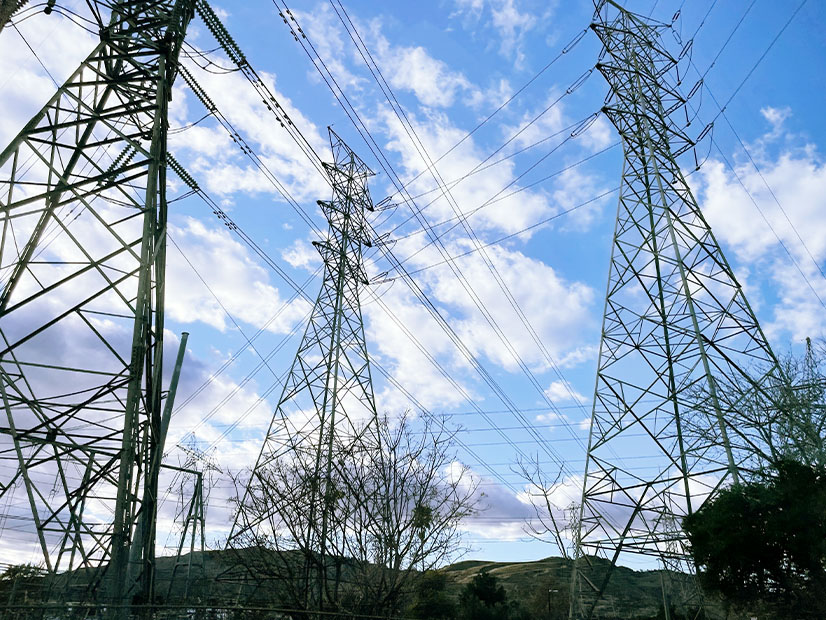The U.S. must change its permitting processes to deploy the $2 trillion allocated for energy in last year’s industrial policy bills and ensure the emissions reductions needed to avoid the worst impacts of climate change, speakers said during a webinar hosted by Our Energy Policy Wednesday.
Rep. Pete Stauber (R-Minn.), whose Northeast Minnesota district is home to the nation’s biggest reserves of key clean energy industry minerals such as nickel, cobalt and platinum, said a proposal to speed up approval of mining permits has made it into House Republican bill HR 1, which is expected to move to a floor vote in the coming weeks. (See Republicans’ Opening Offer on Permitting is Missing Electric Tx.)
“We have yet to move earth at all on those resources,” Stauber said. “In fact, we have one mining proposal on year 20 of permitting and litigation. Think about that: a proposal to mine the minerals needed for clean energy is being held up for 20 years.”
Without tapping those resources and many others, renewable energy goals will not be attained, he said.
“We are dealing with an incredibly complex permitting landscape that’s influenced by an extraordinarily dynamic regulatory landscape that is — across federal, state [and] local levels — often uncoordinated,” said Karen Hanley, senior vice president at the Permitting Institute. “And when we’re talking about ‘rising tides lift all boats,’ we’re looking for good governance in the permitting process itself.”
Much of the conversation on the Hill has been dominated by the National Environmental Policy Act, which Hanley noted is just one of 65 federal laws and regulations that impact permitting, on top of many more rules from the states and local government.
“Where policy comes into play, we consider that to be a separate discussion; the process itself should not be used subjectively to pick winners and losers,” Hanley said.
The permitting process must weigh the benefits of an infrastructure project against its impact on the area where it is built, other speakers said.
“It’s all just a matter of trade-offs,” said Paul Phifer, director of permitting and development at Attentive Energy. “I mean, all permitting to me is an expression of our values. So, it’s an expression of risk management.”
Phifer’s firm is a subsidiary of French oil major TotalEnergies, which is developing an offshore wind project off the coast of New York. It would make sense for Congress to change the permitting laws to reflect some of the new tradeoffs faced by energy development now, he argued.
Setting the Tone
Much of the conversation on rule changes has focused on “categorical exclusions” that would give energy projects of preferred types or in specific areas an easy path through the process if they have limited environmental impacts, said Hanley. The Coast Guard must review some offshore projects, but it has a checklist it can apply to execute such categorical exclusions that ensure it has double checked that its oversight is not needed for specific projects, she added.
Accelerating the permitting process does not necessarily require a raft of new laws but rather Congress being clearer about how they are to be implemented, Phifer said.
“That’s the kind of thing that sets the tone that I would say that filters down … through the federal agencies even to the states, as opposed to tweaking and making minor regulatory revisions across the 65 laws that Karen mentioned,” Phifer said.
Getting any changes through Congress this year will require bipartisanship, with both chambers closely divided and controlled by different parties.
“I think there’s interest on both sides of the aisle, in particular, in long linear projects,” Hanley said. “I think there’s a recognition that where our energy needs are, isn’t necessarily the same places where the sources are, or the generation can be.”
Communities located between areas with energy resources and bigger sources of demand must often deal with projects that provide them little benefit, which brings up many complexities.
The issue of permitting has been debated for years, and Hanley expects lawmakers to insert many of their older proposals into the package. But she thinks there is opportunity to move forward on a package that addresses “fundamental process corrections” that do not eliminate necessary environmental protections.
“Obviously, all industries have their own little pet asks that they would like to see included in a package like that,” said Emily Wong, American Petroleum Institute’s director of federal relations. “But I think it’s been pretty clear from our discussion today, that we’ve all identified a lot of the same big-picture issues. And it’s certainly our hope, at API at least, that there’s enough agreement there for us to see something move across the finish line.”




